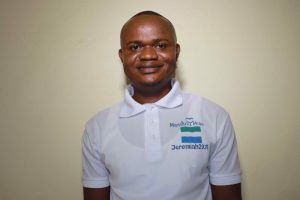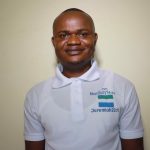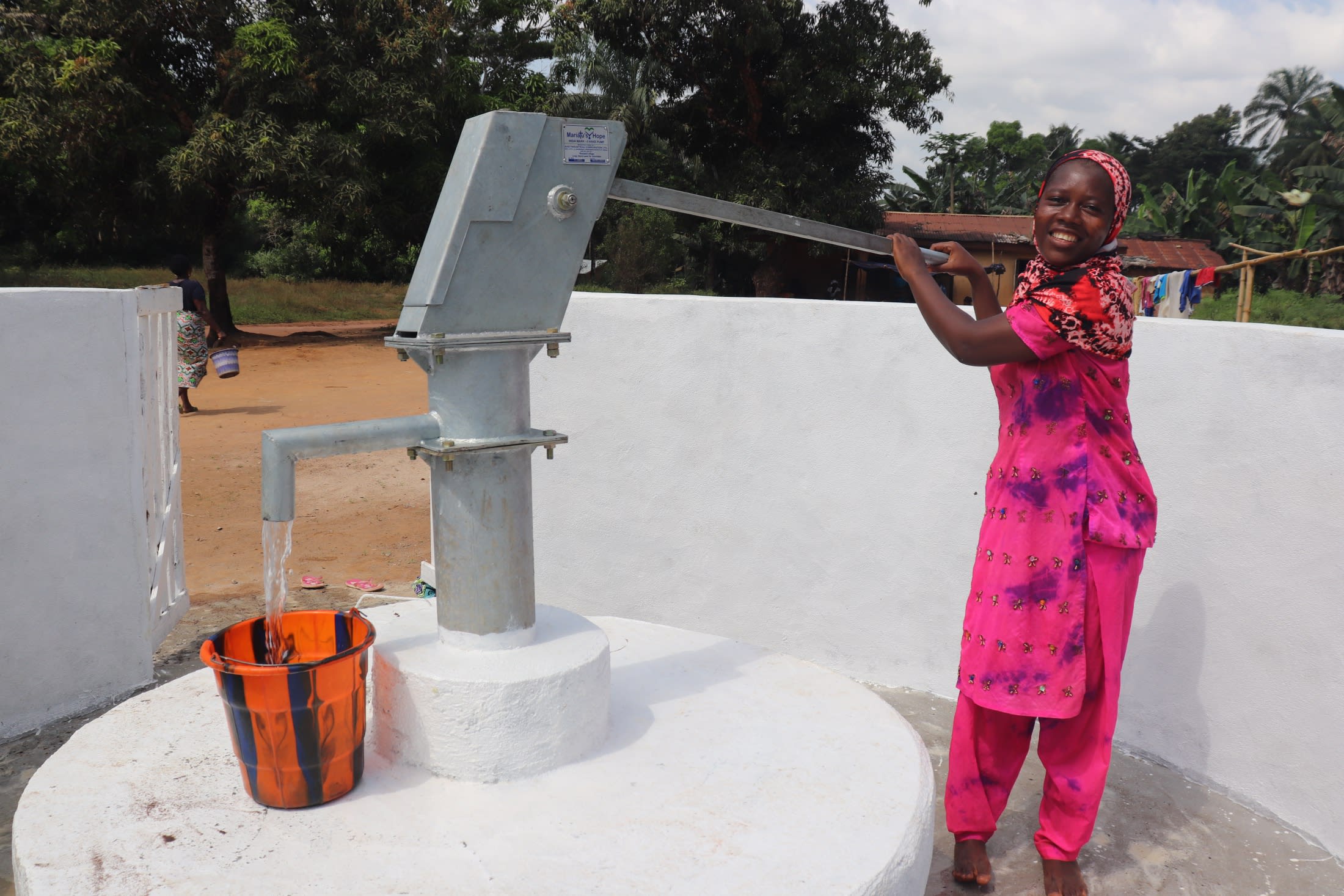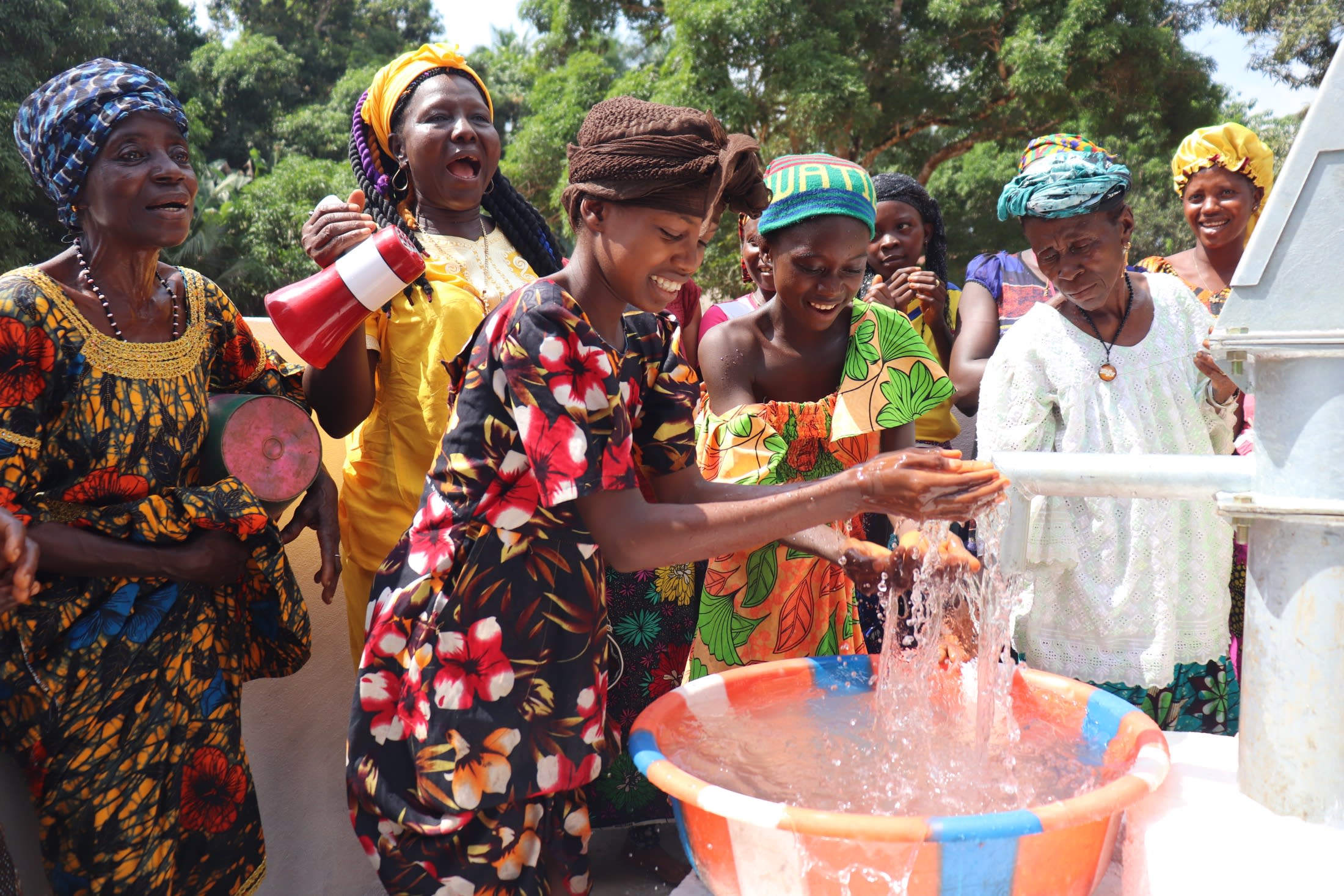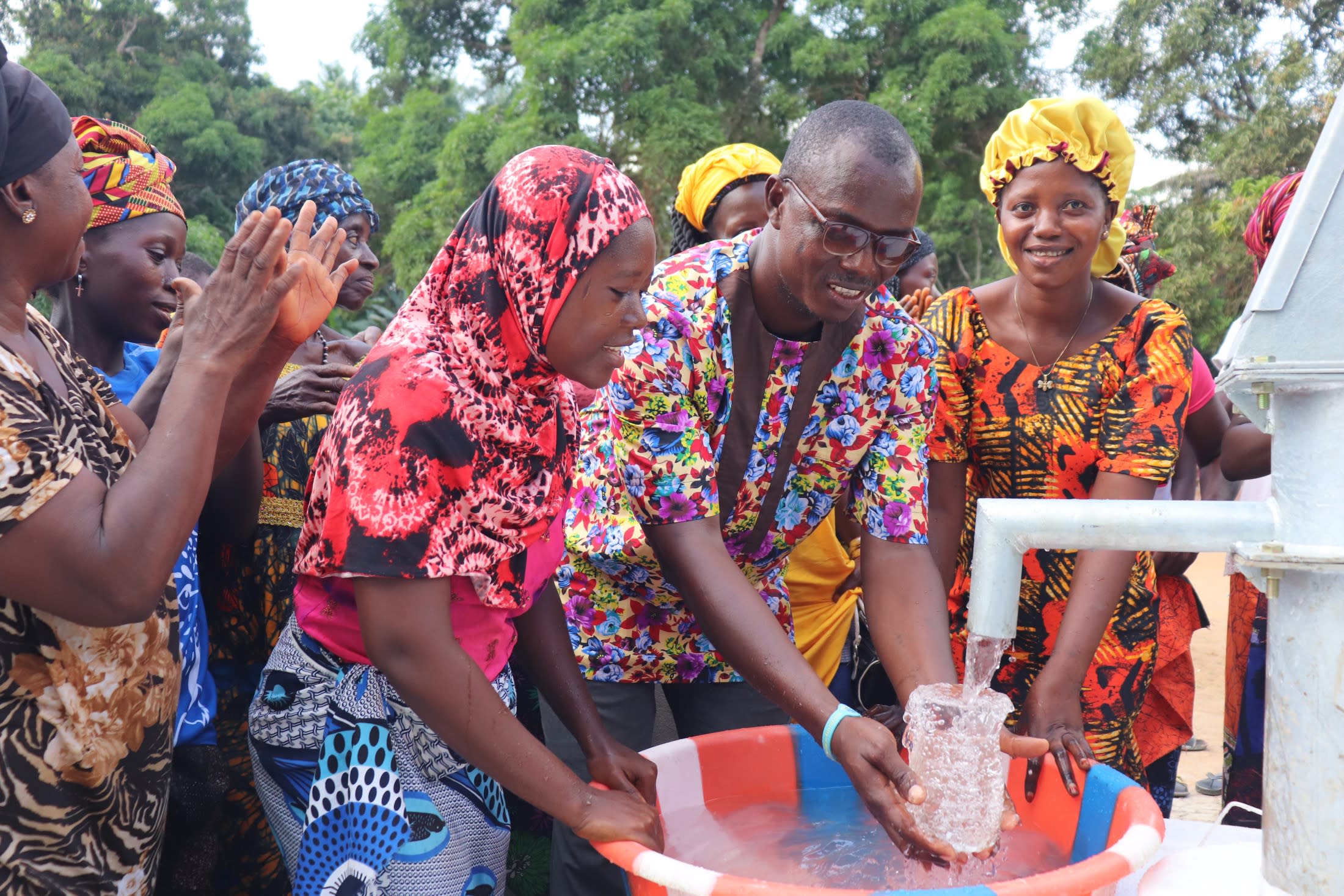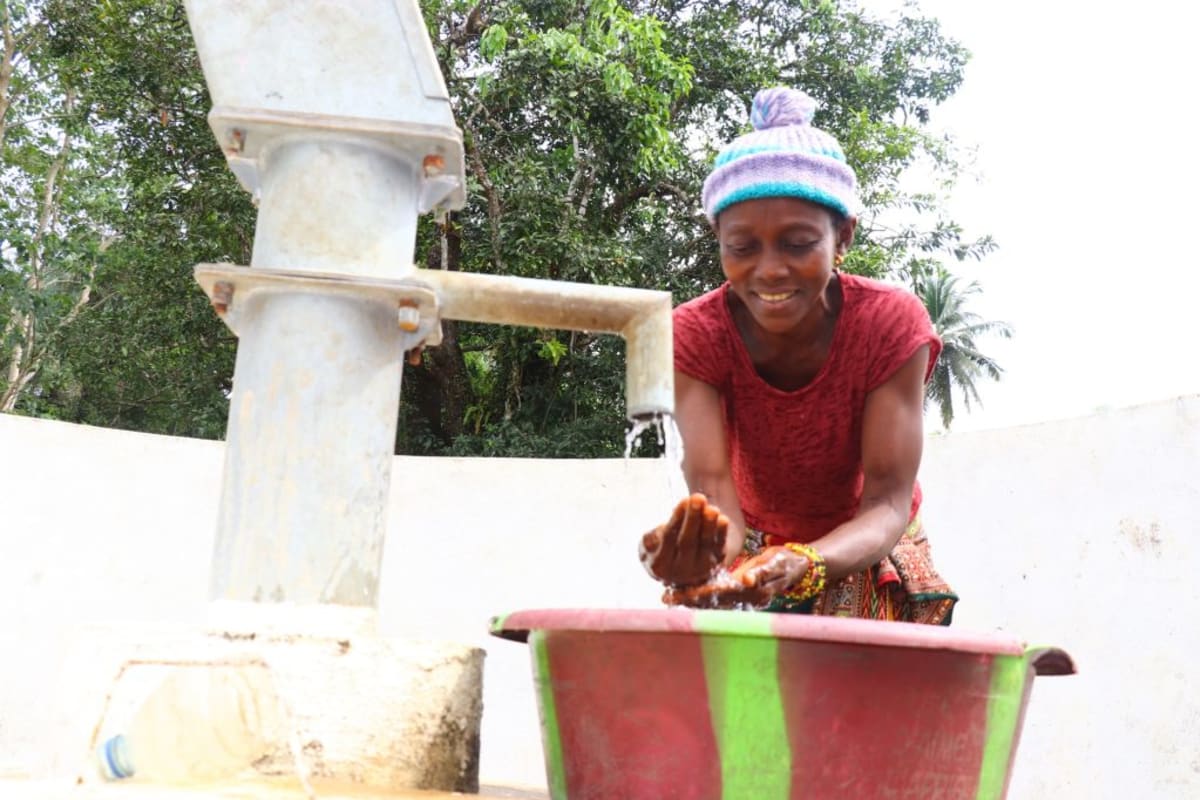In 2012, the pump for Laminaya Community's main well was stolen. People stopped maintaining the open well since it was left uncovered, and some careless people threw their refuse inside. Now, the water within is contaminated and has an unpleasant odor—and 10 years later, there's still no pump.
There is another well nearby, but it is not in much better shape. The well pad is crumbling, with no fence or gate to keep roaming domestic animals from contaminating the area. What's worse is that this functioning well has begun to go dry for several months each year due to Sierra Leone's annual dry seasons.
So, much of the time, Laminaya's people get their water from the swamp, which the locals call Kobalia Stream. It is both riddled with algae and open to contamination from flora, fauna, and humans bathing and laundering their clothes near the water source.
"There is a crisis in water in this community," said 24-year-old farmer Mariatu Kargbo, in the below photo.

"The well is not enough for everyone in this community," Mariatu continued. "That is why it is difficult to fetch water from it. Sometimes it gets dry, or the pump gets a breakdown. This is the most difficult moment for me. It is now usual that I cannot get water at the time that I need it. It really frustrating to me when I spend more time fetching water and there is not enough to use. This is because of the far distance or the low level of water in the well. I cannot make [multiple] trips of water before it gets late."
Bathing and laundering at the water source dirty the water, but for Mariatu and 15-year-old Fatmata, it's so much easier to do chores at the swamp rather than carrying full containers of water back and forth.
"It is difficult to fetch water from Kobalia," Fatmata (in the below photo) said. "I would prefer to take the uniforms to Kobalia and wash them. That [would] be easier than carrying water to the house to wash them."

"I cannot do laundering at the house because of the constraints on fetching water. It is not easy to fetch water from Kobalia because of the far distance, and the area is not safe," Mariatu said. "The water at Kobalia is not clean. When the water is low during the dry season, it becomes more difficult to fetch water from the stream. It easily becomes filthy and that would cause me to return to the house without water. If I must use water to do anything, it would be delayed at that moment."
When we fix the well so that it can provide water year-round, the number of trips people will have to make to complete their daily work will reduce. With more of our water sources popping up around Laminaya every day, they'll also spend less time in lines. This new time and energy will aid the community members in both relaxing more often and accomplishing more tasks.
Here’s what we’re going to do about it:
Well Rehabilitation
The well marked for this overhaul is dry for a few months every year and needs major work to supply adequate, clean water to the community year round. The pump will be removed, and a hand auger will be lowered inside and powered by a drill team. This hand auger will allow the team to drill several meters deeper to hit a sufficient water column that will ensure the well supplies water throughout all seasons.
As the team drills, casing will be installed, transforming the bottom of this hand-dug well into a borehole. PVC piping will connect this lower system directly to the pump, a construction that we know will also improve the quality of water.
Once this plan is implemented, everyone within the community will have access to safe drinking water in both quality and quantity, even through the dry months.
Hygiene and Sanitation Training
There will be hygiene and sanitation training sessions offered for three days in a row.
After our visit, the hygiene and sanitation trainer decided it would be best to teach community members how to build a tippy tap (a hand-washing station built with a jerrycan, string, and sticks). They will use these tippy taps for handwashing demonstrations, and will also teach about other tools like dish racks and the importance of properly penning in animals.
These trainings will also strengthen the water user committee that manages and maintains this well. They enforce proper behavior and report to us whenever they need our help solving a serious problem, like a pump breakdown.

 Borehole Well and Hand Pump
Borehole Well and Hand Pump









